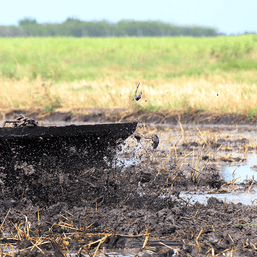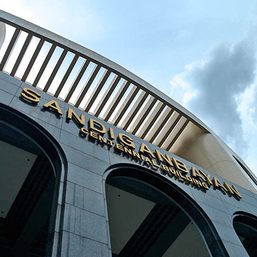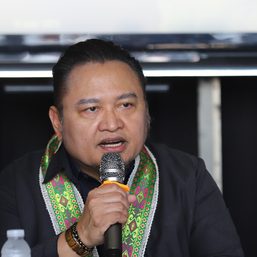SUMMARY
This is AI generated summarization, which may have errors. For context, always refer to the full article.
The Philippine Health Insurance Corporation (PhilHealth) justified its Interim Reimbursement Mechanism (IRM), which was flagged as a source of corruption in the agency.
In a statement on Tuesday, July 28, PhilHealth President and CEO Ricardo Morales said the state insurer implemented the IRM scheme to give hospitals the flexibility as they respond to COVID-19 patients.
PhilHealth added that “IRM releases are based on the historical claims of hospitals, and undergo a process of application, evaluation, validation and recommendation at the level of the PhilHealth Regional Offices, and approval at its Head Office.” It maintained all releases were “above board” and followed the guidelines set by the state insurer.
“Extraordinary times need extraordinary measures,” Morales said. He belied reports that hospitals were not required to liquidate their advances.
IRM funds give hospitals with sufficient liquidity for health crisis response, especially during the COVID-19 pandemic.
Contrary to allegations that liquidation is “optional,” Morales said IRM is “strictly subject to the usual stringent government accounting and auditing rules, and requires reconciliation and liquidation contrary to reports that hospitals are not required to liquidate their advances.”
“Liquidation is definitely a must but since we are in unusual times, we made the timing of liquidation flexible with such options left to the good judgement of the Regions given the situations that hospitals are in,” Morales said.
Morales said PhilHealth is evaluating IRM fund distribution in areas with high COVID-19 cases, such as Metro Manila, Central Luzon, Calabarzon, Central Visayas and Eastern Visayas. Hospital bed capacity in these regions either reached full or were at critical levels resulting from increased infections following the easing of quarantine restrictions.
This development came after resigned PhilHealth anti-fraud legal officer Thorrsson Montes Keith accused Morales of being a “coddler or may have become the new leader of syndicate in PhilHealth” for allowing the implementation of IRM. (READ: Anti-fraud officer resigns because of ‘widespread corruption’ in PhilHealth)
“Kapag ganun po ‘yun, puwede pong ma-compare ‘yun sa intelligence fund na wala na siyang resibo resibo,” Keith said in a GMA News report on Monday night. (If that’s the case, we can compare that already to an intelligence fund without issuance of receipt.)
An Inquirer report on Monday said resident auditors of PhilHealth have linked one of its senior executives and a “former acting president and CEO” to the anomalous release of a “cash bonanza” from a P30 billion financial package for hospitals treating COVID-19 patients.
Morales also defended its Senior Vice President for Fund Management Sector Renato Limsiaco Jr who allegedly favored certain hospitals for quickly releasing the IRM in record time.
Morales said that Limsiaco’s role is “limited to vetting the release of funds only in terms of completeness of documents, and not in determining which hospitals will be given the fund.”
According to Morales, some P15 billion has been released to 711 institutions, disproving the unfounded claims that Limsiaco abandoned his post during the enhanced community quarantine when he was marooned by the locked down in his hometown in Eastern Visayas.
“The IRM funds were offered to all healthcare facilities including lying-in centers and dialysis clinics to ensure unhampered health services to all Filipinos,” the PhilHealth chief said.
In May, Morales said PhilHealth revised its strategy in IRM releases by scaling down releases only to areas with high cases of COVID-19 to ensure that “sufficient funds are available for all citizens needing healthcare” and provide support to the country’s expanded targeted testing strategy.
Morales said it is “premature to conclude that conclude that these hospitals will not be treating infected patients in the weeks or months to come.”
On Friday, July 27, Senator Panfilo Lacson and Senate Minority Leader Franklin Drilon made separate calls for a legislative probe into the “unbated corruption” in PhilHealth.
President Rodrigo Duterte has also ordered Malacañang undersecretary Melchor Quitain to probe the state health insurer for “alleged anomalies.” – Rappler.com
Add a comment
How does this make you feel?





There are no comments yet. Add your comment to start the conversation.